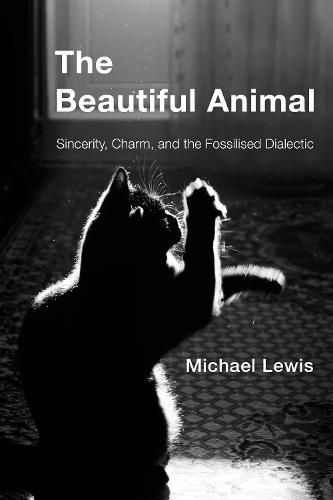Readings Newsletter
Become a Readings Member to make your shopping experience even easier.
Sign in or sign up for free!
You’re not far away from qualifying for FREE standard shipping within Australia
You’ve qualified for FREE standard shipping within Australia
The cart is loading…






Can philosophy conceive of a perfect animal? Can it think of the animal as anything other than an imperfect human? The book attempts to rethink the Hegelian dialectic so as to render it capable of assigning a proper place to the animal, and in particular the beautiful animal, and to rework the philosophy of nature so as to encompass the fossil. The fossil itself teaches philosophy and in particular the dialectic how it must modify itself in order to encompass the beautiful animal, in the form of what we term the fossilised dialectic, resistant to the spiritualisation which will always leave the animal behind. If philosophy can admit the animal in this way, we might then ask what philosophy can learn from this animal that will have taken up residence in its home? What does a specifically domestic animal teach us? At the very least, it shows us that the function we give to the furnishings of the house is not the only one and perhaps therefore that there is no single unique function. In this way, animals teach us the most philosophical lesson there is: to see the world as it is in itself.
$9.00 standard shipping within Australia
FREE standard shipping within Australia for orders over $100.00
Express & International shipping calculated at checkout
Can philosophy conceive of a perfect animal? Can it think of the animal as anything other than an imperfect human? The book attempts to rethink the Hegelian dialectic so as to render it capable of assigning a proper place to the animal, and in particular the beautiful animal, and to rework the philosophy of nature so as to encompass the fossil. The fossil itself teaches philosophy and in particular the dialectic how it must modify itself in order to encompass the beautiful animal, in the form of what we term the fossilised dialectic, resistant to the spiritualisation which will always leave the animal behind. If philosophy can admit the animal in this way, we might then ask what philosophy can learn from this animal that will have taken up residence in its home? What does a specifically domestic animal teach us? At the very least, it shows us that the function we give to the furnishings of the house is not the only one and perhaps therefore that there is no single unique function. In this way, animals teach us the most philosophical lesson there is: to see the world as it is in itself.